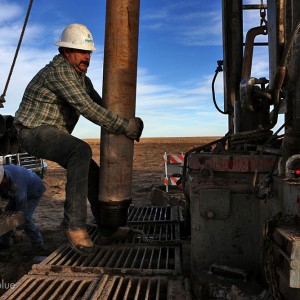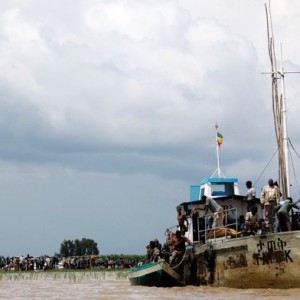The Stream, November 17: U.S. Oil Draws Water From Other Countries
The Global Rundown |
The production of oil used by the United States relies heavily on freshwater supplies in other countries, a new study found. El Nino will continue to strengthen through the end of the year, according to the World Meteorological Organization. Floods in India and Sri Lanka turned deadly, and the drought in South Africa could dramatically increase the number of cattle slaughtered this year. Biologists in Brazil are saving fish from a river polluted by dam failures at an iron ore mine, and the United Nations is raising awareness about global sanitation needs.
“Our scientific understanding of El Niño has increased greatly in recent years. However, this event is playing out in uncharted territory. Our planet has altered dramatically because of climate change, the general trend towards a warmer global ocean, the loss of Arctic sea ice and of over a million square km of summer snow cover in the northern hemisphere. So this naturally occurring El Niño event and human induced climate change may interact and modify each other in ways which we have never before experienced.”–Michel Jarraud, secretary-general of the World Meteorological Organization, on the agency’s prediction that the current El Nino will strengthen through the end of the year, making it the strongest in more than 15 years. (World Meteorological Organization)
By The Numbers |
71 people Number killed in floods in southern India and Sri Lanka after a week of heavy rains. Reuters
36 percent Potential increase in the number of cattle slaughtered in South Africa this year due to a severe drought. Bloomberg
2.4 billion people Number worldwide without access to adequate sanitation. The United Nations plans to raise awareness about sanitation issues on November 19, “World Toilet Day”. Reuters
Science, Studies, And Reports |
Nearly three-quarters of the water needed to provide oil for the United States comes from other countries, according to a study published in the Proceedings of the National Academy of Sciences. Many oil-producing countries are already water-stressed, and energy production is adding extra pressure on their water supplies, the study found. Climate Central
On The Radar |
Biologists are using six 1,000-liter tanks to transport fish from Brazil’s Doce River to nearby lakes after the river was polluted by tailings accidentally released from an iron ore mine. The mine’s owner provided the tanks. Associated Press
A news correspondent for Circle of Blue based out of Hawaii. She writes The Stream, Circle of Blue’s daily digest of international water news trends. Her interests include food security, ecology and the Great Lakes.
Contact Codi Kozacek







Leave a Reply
Want to join the discussion?Feel free to contribute!